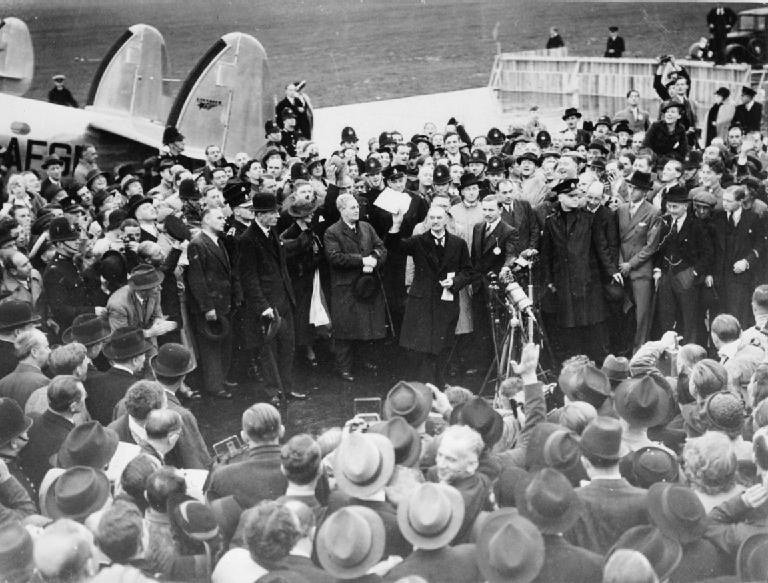A Well-Trodden Road | History Today - 3 minutes read

British politics on the eve of the Second World War remains a subject of enduring fascination. Recent years have witnessed the publication of a plethora of new books on the subject, from Daniel Todman’s Britain’s War to Nicholas Shakespeare’s Six Minutes in May as well as this reviewer’s own The End is Nigh. The subject is ripe for argument, as the quantities of literature produced about it show.
The latest addition to the field is Tim Bouverie’s first book. A former journalist for Channel 4 News, Bouverie is particularly good at capturing the essence of politicians’ personalities. The book offers a self-consciously narrative history, in which analysis is deliberately restrained and the telling of an evocative story is prioritised instead. Bouverie’s prose is fluent and assured throughout. Those in search of an entertaining read will find one.
Appeasing Hitler spans the appointment of Adolf Hitler as Chancellor of Germany in January 1933 to the emergence of Winston Churchill as British Prime Minister in May 1940. These seven years saw the funeral pyre of Europe’s global dominance stacked ever higher and then, finally, set ablaze. Bouverie’s book is an engaging guide to that process from a British perspective. Neville Chamberlain is at the fore, but Bouverie draws upon a large cast of characters to weave his narrative together. They include influential civil servants and diplomatic emissaries.
For those who are unfamiliar with the events and personalities in question, Appeasing Hitler is an ideal introduction. For readers who already know the broad outlines, however, there is perhaps little to discover. Bouverie is frank from the outset that his goal is to offer relatively limited analysis, but while this serves to keep the story barrelling along, it also hinders the development of a distinctive argument that might help the book to stand out in a crowded field.
This is an account of Appeasement that largely relays a narrative that will be familiar to most Britons and indeed many overseas. It was first told in Winston Churchill’s 1948 memoir The Gathering Storm and, while it has much to recommend it, the fact that it has been retold by every generation of historians since means that there is little new to say about it. A sustained analysis might have done more to capture the deeply interactive relationship between British foreign policy and political ascendancy at Westminster during this period – something that has obvious parallels to the present – which saw political ambition and intrigue come to centre on international strategy. That was where the opportunities –and the risks – were.
Rather than being marked by cowardice or naivete, as the critics of Appeasement so often charge, the period was instead dominated by a serious deficiency of strategic imagination that brought about the collapse of Britain’s global power. Britain’s own interests may have been best served by avoiding becoming the policeman of Europe, a role that only postponed the inevitable clash between Nazi Germany and the Soviet Union.
The Churchillian narrative is good for anaesthetising the pain of national disaster, but it might also discourage us from probing the real failings of British foreign policy. While Bouverie’s new book would benefit from the development of a more distinctive line of argument, it represents an admirable retelling of traditional history.
Appeasing Hitler: Chamberlain, Churchill and the Road to War
Tim Bouverie
Bodley Head
497pp £20
Robert Crowcroft is the author of The End is Nigh: British Politics, Power, and the Road to the Second World War (Oxford, 2019).